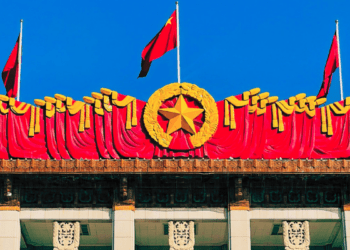By Koichiro Komiyama, March 15, 2023
Canada and Japan share fundamental values such as democracy, the rule of law, and human rights, including freedom of speech. Therefore, it is no surprise that the two countries have the same fundamental position on cyberspace governance. Together, both countries remain optimistic about the future of global cyberspace.
Canada, for example, is one of the few countries that describe cyberspace as a global commons, with the following definition in its 2018 cybersecurity strategy: “The electronic world created by interconnected networks of information technology and the information on those networks. It is a global commons where more than 3 billion people are linked together to exchange ideas, services, and friendship.” Japan also views cyberspace as “a new frontier where ideas can be freely discussed without regard to national borders.” Even in the late 2010s, Canada and Japan were very restrained about state control over cyberspace. It was a strong message promoting globalism.
While Canada and Japan sought to keep cyberspace global, French President Macron called for more state Internet regulation. Macron was not alone; many western democratic states, including G7 members, have attempted to regulate cyberspace. The reasons are threefold:
- States have recognized the need to secure themselves in cyberspace. It is estimated that quite a few governments and militaries already possess cyber-attack capabilities. Cyber-attacks and cyber-espionage sponsored by a state are still occurring frequently.
- States have entered the race for a new resource: data. The direct impetus came from the EU’s General Data Protection Regulation (GDPR), which prohibits the export of EU citizens’ data outside its jurisdiction. In East Asia, China and Vietnam have introduced GDPR-like systems, and there is a growing trend toward data localization worldwide.
- Political leaders have been threatened by the dangers of the new problem of disinformation: The 2016 US presidential election, the Brexit referendum in the United Kingdom, and the 2017 French presidential election have all been suspected of being subject to election interference and disinformation from other countries.
We live in a time when we cannot be confident of the stability of cyberspace itself. While Canada and Japan have been searching for the holy grail, globally governed cyberspace, others have acted intelligently and cleverly in their own interests. Canada and Japan miscalculated this shift in cyberspace. Both are now, belatedly, working to strengthen the state’s role.
The growing threat of disinformation
Disinformation is an age-old problem. While we may often be shocked at the impact of disinformation, we should not be truly surprised by it.
In the 1930s, Adolf Hitler used the then-new technology of radio to deliver his message to the masses. Their inexpensive radios reached 70 percent of German households, spreading Hitler’s speeches far and wide. As the Nazi propaganda chief recalled, it would have been impossible for the Nazis to come to power without radios. During the 1994 Rwandan genocide, a radio station agitated for murder, saying that members of an ethnic minority were cockroaches. A later investigation revealed intense violence in areas where that radio could be heard. At least 500,000 people lost their lives.
Disinformation through newspapers, radio, and television has killed countless lives. Disinformation in cyberspace caused relatively minor effects so far. In Japan, false information against coronavirus vaccination was spread, but we still have not been told of any loss of life. We have little time left before the worst of the worst happens in the near future.
It is challenging to prevent disinformation in cyberspace. It is tough to prevent it while maintaining democracy. The more we eliminate disinformation, the more we mimic the act of authoritarian states.
Canada and Japan must overcome the temptation to make the Ministry of Truth, which appeared in George Orwell’s famous novel 1994. We must resist the temptation to create a fully controlled space where a handful of elites provide information in one direction. This requires tolerance that there will be some degree of disorder in cyberspace.
The way forward
What are some concrete steps for Canada, Japan and their allies to mitigate these risks in the next few years? Simply put, we need more states to promote democracy and fight against disinformation.
It is reasonable to see three groups competing for hegemony in cyberspace. First, there are countries like Russia and China that advocate for greater sovereign control over cyberspace. Second, countries like Canada and Japan advocate for an open, global cyberspace. The third group has been unable to determine which of the first two groups it should adapt to.
Researchers at New America called this third group “Digital Deciders“: countries like Brazil, Indonesia, Mexico, India, and Singapore. Digital Deciders refer to a group of states that are well-connected, undecided, or unconcerned about the best future scenario for cyberspace. The future is up to whether these Digital Deciders buy into our plan or their plan. To strengthen cooperation with these countries, we need to devote more diplomatic resources to the G20 than to the G7, and to the Association of Southeast Asian Nations (ASEAN) and BRICS (Brazil, Russia, India, China, and South Africa) than to the EU.
In closing, civil society and think tanks in Canada and Japan will have more opportunities than ever to play an instrumental role in the healthy development of cyberspace.
From October 8-12, 2023, the government of Japan will host the Internet Governance Forum (IGF) in Kyoto, Japan. This is a multi-stakeholder forum arranged by the United Nations to discuss the future of cyberspace. Due to the pandemic, we have missed the opportunity for face-to-face discussions for the past several years. The coming IGF will bring together experts from around the world in Kyoto. We look forward to productive discussions there.
This Inside Policy article was supported by the Japan Foundation.
Koichiro Komiyama is a senior researcher at the Keio Research Institute at Shonan Fujisawa Campus, and Director of the global coordination division at JPCERT/CC (Japanese Computer Emergency Response Team).






